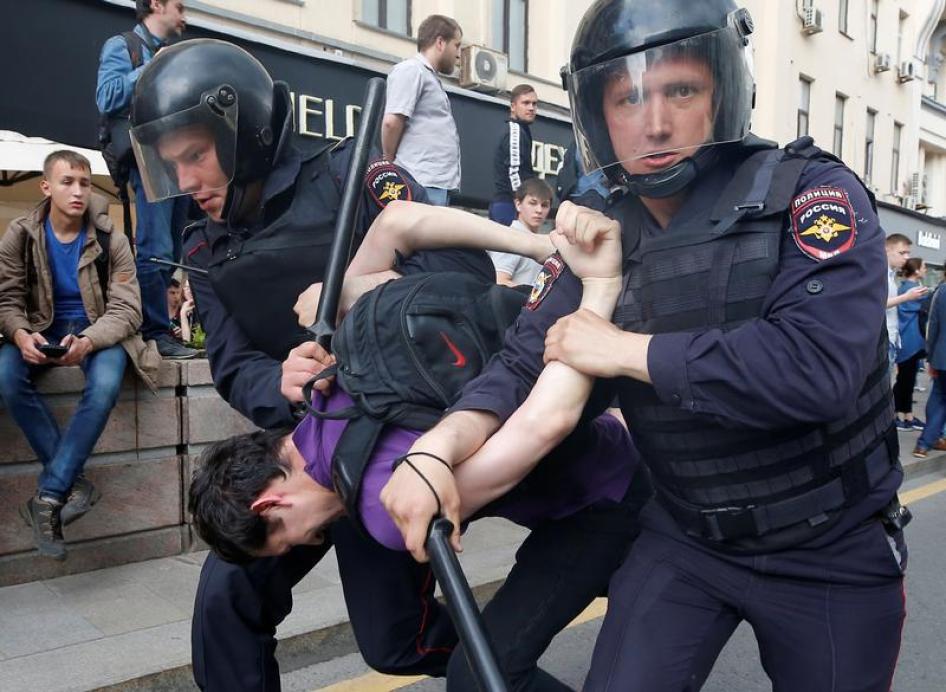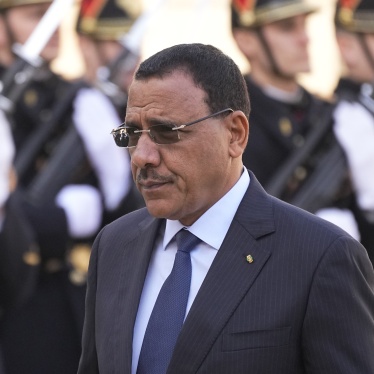Yesterday the European Court of Human Rights ruled in favor of one of Russia’s most visible opposition figures, Alexei Navalny, finding that his numerous arrests at public protests between 2012 and 2014 were politically motivated and violated his rights to freedom of assembly, among other things.
Navalny, in response, focused not on what the ruling meant to him, but on what it meant to the many others in Russia “who are regularly grabbed and jailed for obviously political reasons.”
That’s the right call. In recent years, police arrested thousands of people for having taken part in peaceful public protests, even where organizers had made a good faith effort to engage with the authorities about the venue.
In some instances, police charged parents with “neglecting parental duties” for allowing their children to attend rallies. In 2017, university officials threatened students with expulsion, if they attempted to organize “unauthorized” rallies. Police have not shied away from arresting children at peaceful rallies. Nor have police shied away from excessive, brute force to disperse rallies.
Fines range from 5,000 (US$76) to 20,000 rubles or 10 days in jail. Organizers, such as Navalny, drew harsher penalties, including up to 25-30 days in jail. Repeat arrests for unauthorized protesting though, can lead to up to 5 years’ imprisonment.
For several years, Russian authorities have been tightening their grip on dissent and peaceful protest, including by adopting new laws with stricter rules on protests and harsher penalties for violations. Just last week, parliament finished the first stage of approving a bill that, if adopted, would introduce a maximum 15-day jail sentence for protest organizers who involve people under 18 in unauthorized assemblies.
In yesterday’s ruling, the court noted that although governments can have legal requirements to seek authorization for assemblies, any interference with free assembly has to have a “legitimate aim . . . such as the prevention of crime or disorder or protecting the rights of others.”
It’s hard to see what the legitimate aim could be of fining and jailing thousands of people who have peacefully expressed their views on important issues like corruption and pension reform. Russia’s government would do better, if it listened to these concerns rather than spend extensive resources seeking to silence those who voice them.











